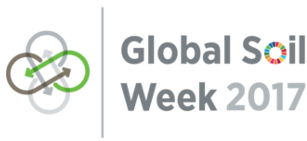![]()
Wednesday, 22 April 2015
Day 4: Visions for the future – an integrated perspective beyond 2015
Organisations
KIT – Karlsruhe Institute of Technology (Germany)
IASS – Institute for Advanced Sustainability (Germany)
Presentations by
Rattan Lal (6 MB)
Rüdiger Grote (2 MB)
Todd Rosenstock (13 MB)
Reiner Wassmann (3 MB)
120 second summary video
Please download the Rapporteurs’ Report here.
Soil-atmosphere exchange processes are one of the major uncertainties in the evaluation of future climate change. Soils release important greenhouse gases such as CO2, CH4 and N2O but they also have the biggest potential for carbon sequestration. In addition, soil-atmosphere exchanges of gases and particulates affect air quality and thus human health.
The two-way exchange between soils and the atmosphere is a result of complex mechanisms and is influenced by climate, vegetation, and human management. These mechanisms are not yet fully understood and are difficult to describe in models. Consequently, the representation of exchange processes in global and regional Earth system models is quite simplistic. Several important questions remain. Which information is needed to adequately advise actions for management, protection or restoration of soils? What is the current understanding of the processes involved and how can we represent them in models? What representations can be developed and used effectively in collaboration with the relevant stakeholders?
Discussing these questions will be the primary theme of the session about soil-atmosphere exchange. The objective is also to identify opportunities for collaboration between academic researchers and interested stakeholders. We hope that a dialogue will develop during this session between stakeholders and scientists, allowing for transdisciplinary setting of a research agenda. The aim of such an agenda is not only to improve the understanding of emission and deposition processes but also to raise awareness about the importance and uncertainties of processes and guide possible risk avoidance strategies for land and soil management.
Download the session description here.
Programme

Contact: Tim Beringer, Tim Butler
